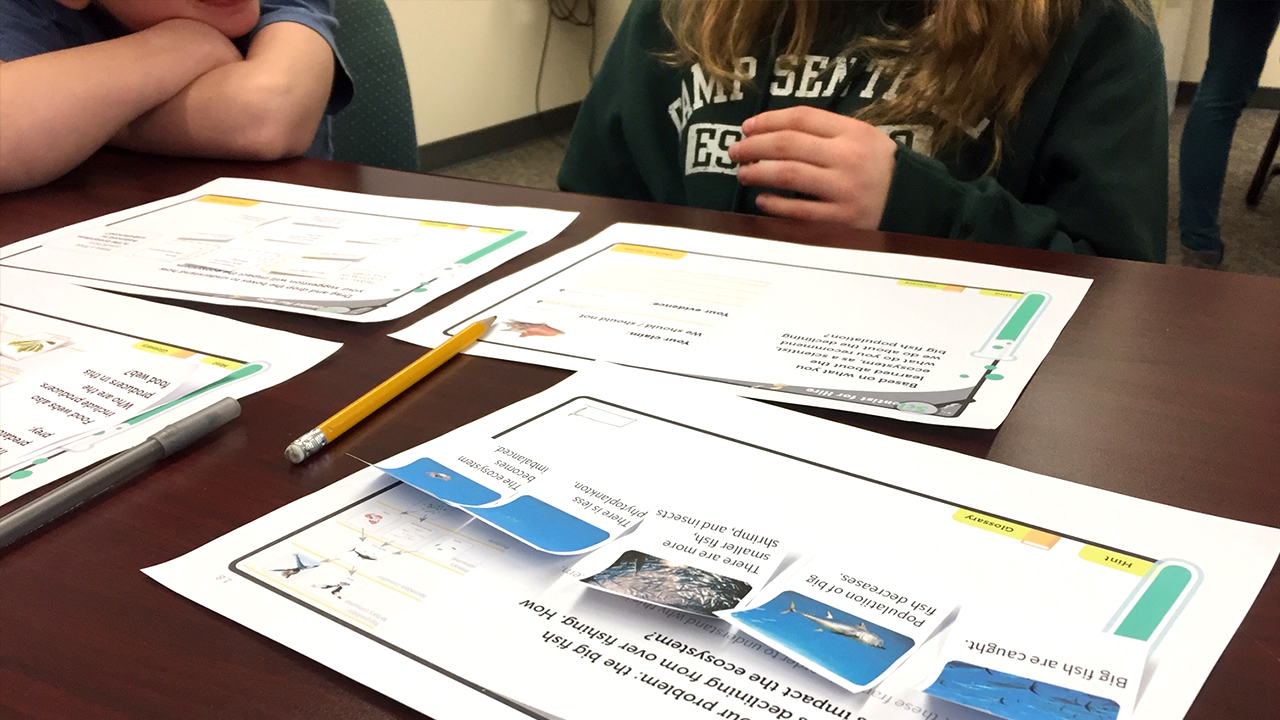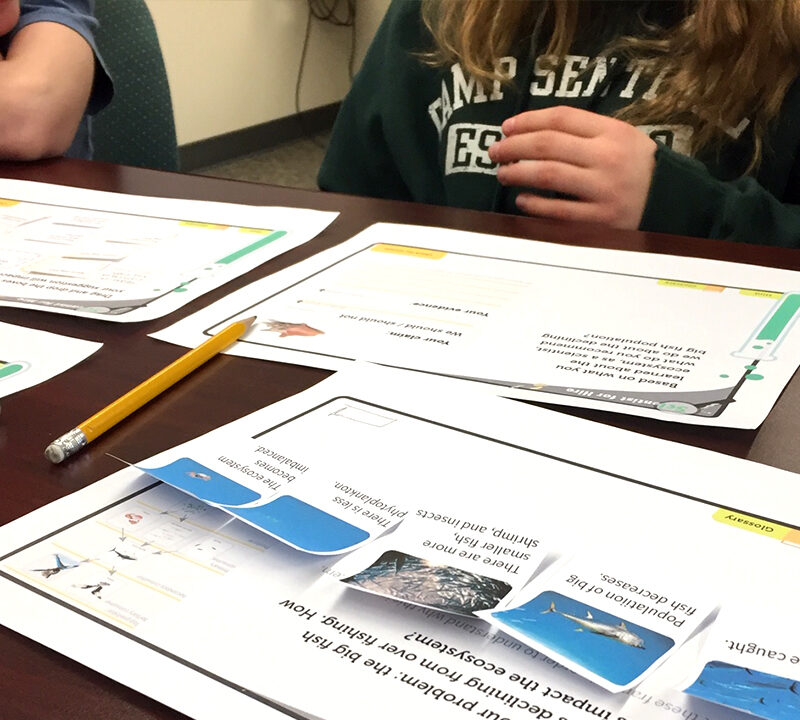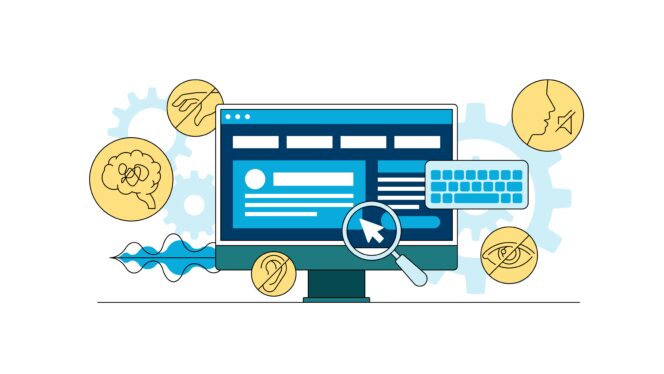Project Title
Innovations in Science Map, Assessment, and Report Technologies (I-SMART)
Project Website
ismart.works
Project Description
I-SMART is developing a rigorous, UDL-based science assessment solution for elementary, middle, and high school students not meeting grade-level standards, including students with significant cognitive disabilities. It’s being designed for two purposes: summative—to support annual state accountability—and formative—to support effective classroom-based instructional planning. I-SMART, which leverages the Dynamic Learning Map assessment system is a collaboration of ATLAS at the University of Kansas, CAST, and five state departments of education led by Maryland, and encompasses 4,500 students and their teachers.
Unique to the I-SMART approach is the iterative co-design process built into CAST’s two main project research and design efforts:
- Development of prototype, NGSS-aligned ecology “testlets” that deeply apply UDL principles. In addition to providing students with multiple means of representation of content and instructions, and multiple means to demonstrate their knowledge, skills, and abilities, we’ve co-designed the tasks with students to ensure they have agency and choice to increase engagement and equity, as well as the relevancy and usability of science test content and user experience.
- Design of a prototype teacher dashboard to support instructional planning and communication with students, parents and guardians, and other educators. The dashboard was codesigned with teachers to ensure its usability and utility in interpreting assessment data for classroom instructional planning and decision-making. It leverages the power of learning map models to identify appropriate, individualized instructional options for students. With the understanding that not all teachers teach the same way, we’ve designed in flexibility and scaffolds for teachers based on UDL principles.
These elements are undergoing thorough qualitative evaluation with students and teachers, including the use of think-aloud studies.

I-SMART is an example of how addressing the needs of a particular group of students—in this case, those with the most significant cognitive disabilities—has helped us understand ways to meet the needs of a much larger group of students—those with and without disabilities who struggle in science. The ultimate goal of I-SMART is to understand how to leverage UDL to develop digital tasks for students across subject areas, together with intuitive dashboards that allow students and teachers to evaluate student performance and behaviors on these tasks, to support effective formative assessment practices including individualized instructional decision-making.
Project Resources
Teacher Dashboard Design Process
Dolan, R. P., Wojcik, C., Ducharme, K., Starr, E., & Blackorby, J. (2020). I-SMART Goal 3: Teacher dashboard design. CAST, Inc.
This technical report describes the co-design process with which we developed a dashboard that supports teachers’ effective interpretation of—and planning based upon—student performance on DLM science assessments. This effort consisted of researching and designing the user experience, interaction, and interface for the dashboard through an iterative co-design process consisting of an initial needs assessment followed by an alternating series of co-design sessions with a cadre of educators and rapid prototype development. This procedure resulted in a fully-fledged prototype of a score-reporting dashboard.
Additional project resources can be found on ATLAS’s project website.
Timeline
2017 – 2021
Funder
Competitive Grants for State Assessments (formerly Enhanced Assessment Grants), U.S. Department of Education
Partners
Maryland State Department of Education
Kansas University ATLAS team
BYC Consulting
Project Leadership
Michael Plummer, Maryland State Department of Education
Meagan Karvonen, Russell Swinburne Romine & Gail Tiemann, University of Kansas
Jose Blackorby & Bob Dolan, CAST
Contact
For questions and other inquiries about this project, please contact Bob Dolan.


